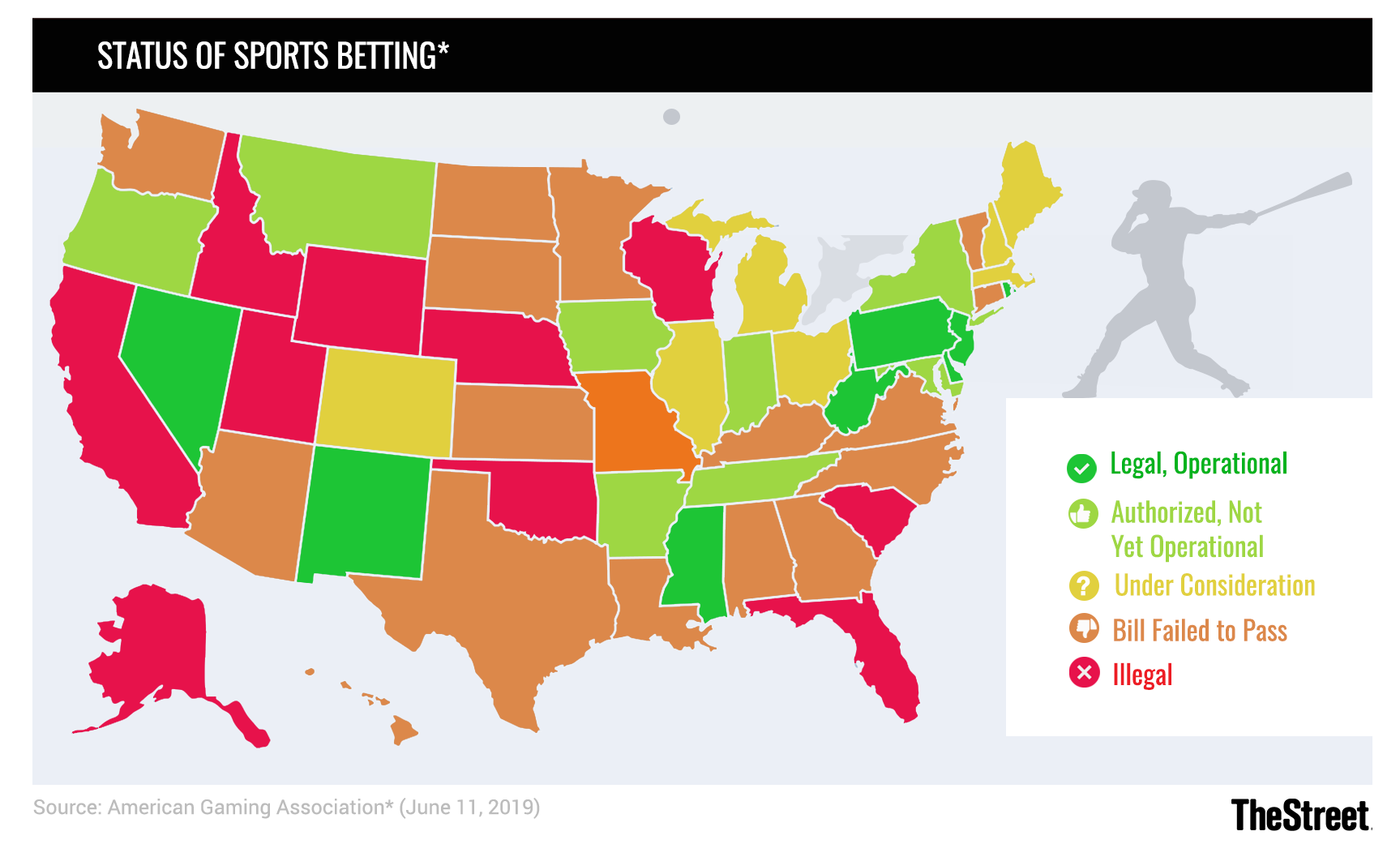States With Legal Gambling
(© levan – stock.adobe.com)
With the pandemic and subsequent lockdowns putting a strain on the economy, some local budgets are expecting severe cuts, due to lower public income from both taxes and fees. But, to avoid unpopular austerity measures, many are looking toward online gambling and digital entertainment as a way to subsidize regular public expenses.

Casinos Legal in All 50 States. Slots.lv Casino has all that one would want in one of the legal gambling states in the USA. Slots.lv Casino gives players a full casino experience. Minimum Legal Gambling Age by State. Legal gambling ages across the US vary, with states setting the minimum age at either 18 or 21. This can however change depending on the type of gambling, as. There are now a variety of bills on file around the country and even some new laws on the books. Below is a look at current legislation by state. These states in particular are close to having legal sports betting: North Carolina (Legalized July 2019) Maryland (Approved by voters in November 2020) Louisiana (Approved by voters in November 2020). On May 14, 2018, the United States Supreme Court found the Professional and Amateur Sports Protection Act (PASPA), the federal law prohibiting states from authorizing sports betting, to be unconstitutional. It is now up to individual states to decide if they want to authorize and regulate sports betting in their state. Also, each state has defined the legal gambling age differently, with some states giving the same age to all types of gambling, while others have different age limits on various activities. For example: in New Jersey, an 18-year-old can buy a lottery ticket or bet on a horse race.
Although the effects of these actions are yet to be seen, those States that have legalized online gambling and allow easier licensing for operators haven’t felt the economic slowdown as much.
Lower Economic Activity is Straining Local Budgets
In many ways, the current economic and health crisis is different compared to those we have experienced in the past. Many of the effects experts expected were mitigated because of the time allowed for preparation.
But, other issues have emerged. Local budgets, especially those relying on taxation from small businesses and renting, are taking a disproportionately bigger hit than experienced on the federal level.
On the other side, states and districts where items are shipped from or manufactured, as well as those who host a lot of online services providers, are experiencing a rise.
Following Good Examples
Even though more than a dozen US states explicitly allow online gambling, few have been proactive in their legislation like Nevada, Pennsylvania, or the State of New Jersey. You can play in online casino sites in New Jersey the same way as you would in a brick and mortar casino, and with many of the same games.
In these states, the losses caused by the pandemic have been mitigated to a significant degree by both domestic players, as well as those logging in from other states to bet and gamble on New Jersey websites.


It seems like Ohio and Michigan would be the first states to follow this example and try to secure a larger piece of the tax income for their budgets, with places like Kentucky following closely, pushed by public opinion in the state.
Current Legal Overview for Online Gambling
States That Allow Online Gambling
When it comes to federal legislation of the United States of America, there are no laws preventing online gambling. These issues are left to every state legislation individually to criminalize or legalize as they see fit.
And, when it comes to state-level legislation, the legal environment can be categorized into three distinct categories for gambling.
- Gambling Legalized by Law
- Some or All Gambling Illegal
- Not Covered by Legislation
Additionally, some states might have laws against commercial gambling, such as California, but without the same restrictions imposed on online casinos and sports betting.
Gambling Laws By State
Explicitly Legal States

There are six US states where all types of gambling are perfectly legal. Delaware, Illinois, Iowa, New Jersey, Pennsylvania, and West Virginia have legalized all forms of betting and gambling, including commercial, online, as well as betting in Native American lands where they exist.
Additionally, California, New Hampshire, Nevada, and Rhode Island have legalized online gambling and allow for wagers to be taken by any type of online operator with representation inside the state.
The Federal Wire Act of 1961 prevents sports betting across state lines, but mentions nothing about betting online in another state. Thus, once sports betting diminished because of the pandemic, bettors used this fact to gamble in states where operators exist and are willing to take wagers.
Implicitly Legal Areas
Some states like Kentucky don’t explicitly allow for online gambling, but neither prevent it with any legislation. An operator opening their business in this state would be treated as a service, or as if the gamblers are coming through the door and not the wire, as commercial gambling is allowed.
But, because there is no clear perspective about what the future might hold, operators avoided investing in online gambling in Kentucky.
This will probably change in the upcoming months, as there is a proposal from May 25th, 2020 to clearly legalize online gambling in the state and bring in new businesses that will offer this service.
States Where Gambling is Illegal
There are only two US states where no type of gambling is allowed and the State will not issue any licenses for casinos, lottery games, sports betting, or online gambling operators. In Hawaii and Utah, local legislators have been clearly against any type of gambling, and are not planning to change this opinion.
But, with a sizable number of people digitally traveling out of state to gamble online, these states might prove to be an example of how an impractical approach might be devastating for the local economy.
Mass Liberalization of the Market is Immanent
Even with the pushback from a fraction of the citizens against gambling due to frights about social issues, it is probable that online gambling is not only here to stay but to thrive as well.
Even in the states where this practice is illegal, the offenders are hard to find, and the fines are excruciatingly hard to impose. Because of this, most experts agree that instead of fighting a losing battle, state governments will do better if legalizing this practice explicitly and regulating how it will be conducted.